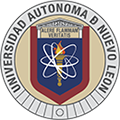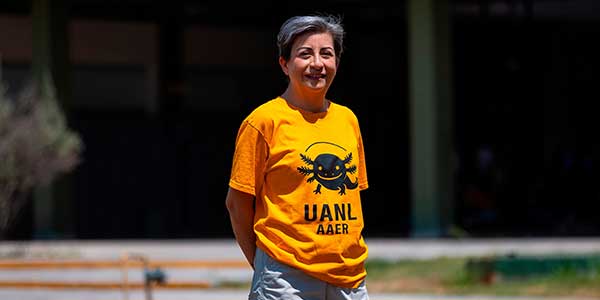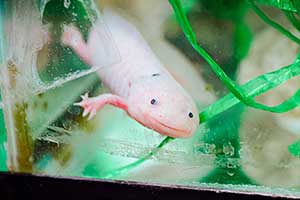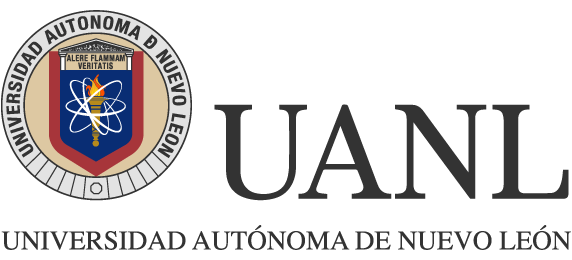Share:
UANL works to protect local Axolotl
The project aims not only to protect the endemic axolotl, but also to generate scientific knowledge that can support endangered species conservation worldwide.
A team of scientists from the Universidad Autonoma de Nuevo Leon (UANL), led by Dr. Dvorak Montiel Condado of the School of Biological Sciences, is leading research on the conservation of an axolotl species endemic to the region.
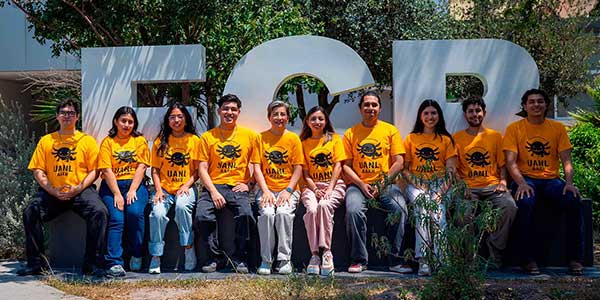
The project, supported by the Secretariat of Science, Humanities, Technology, and Innovation (Secihti), focuses on Ambystoma velasci, a salamander that—unlike its more famous cousin, the axolotl (Ambystoma mexicanum)—can transform into its adult form under stressful conditions.
The study uses environmental DNA to monitor this endangered species. Montiel Condado, who oversees UANL’s Ajolotario and Aquarium of Endangered Species, explained that this innovative technique detects the axolotl through the DNA it sheds into the water, reducing the need to capture multiple specimens.
“Permits have been obtained from SEMARNAT to carry out sampling, and ten Ambystoma velasci specimens have been captured. However, the results have revealed a troubling problem: the water in their habitat is contaminated, and the animals are showing signs of disease. This finding underscores the urgent need to protect this species, which serves as a bioindicator of environmental quality,” said Montiel Condado.
The value of this research
Montiel Condado explained that the ajolotario is home to both Ambystoma velasci and Ambystoma mexicanum, the Xochimilco axolotl. The latter, whose genome is ten times larger than the human genome and has been fully sequenced, plays a key role in ongoing research.
The success of the axolotl breeding program and the broader research effort demonstrates UANL’s commitment to scientific outreach and to preparing new generations of specialists. Students from the biology and genomic biotechnology programs have joined the project”.
Dvorak Montiel Condado,
Researcher
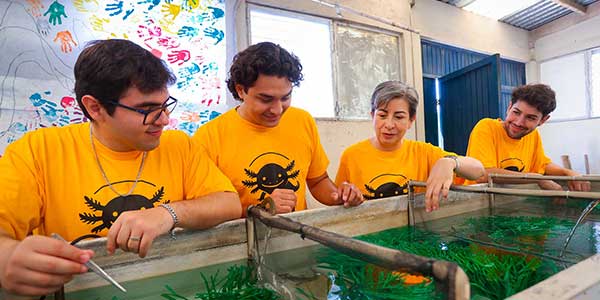
The researcher emphasized that protecting axolotls is critical because they play a vital role in the food web and serve as important indicators of ecosystem health. The efforts at UANL not only focus on preserving the endemic axolotl but also on generating scientific knowledge that can support endangered species conservation around the world.
Posted by: Portal Web
